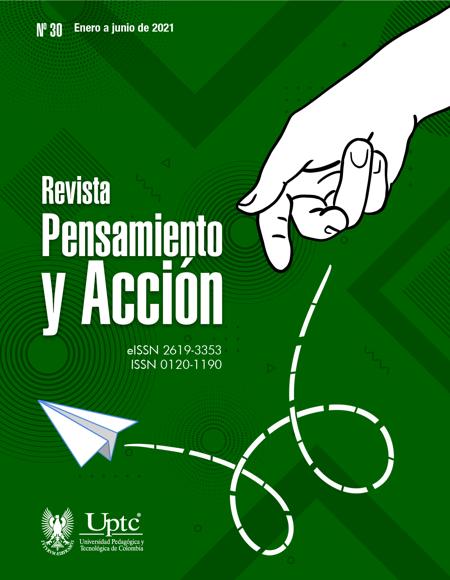Understanding the Problem of Environmental Pollution by Use of Agrochemicals Through Environmental Education

Abstract
We present the preliminary results of the project titled “Comprehension of the environmental pollution problem by the use of agrochemical products through the environmental education”, which is being developed at the Institución Educativa Técnica la Libertad campus Peña de Aguilas, in the municipality of Samacá, Department of Boyacá. The prioritized investigation problem is located, on one hand, in the identification of a culture of indiscriminate use of agrochemical products in the community from sixty years ago until now and, on the other hand, in the absence of academic processes from the educational institution above that involve the comprehension of environmental problems inside their territory. The guiding question of the process is: “How to contribute in the comprehension of the environmental pollution problem by the indiscriminate use of agrochemical products in Vereda Peña de Aguilas in the municipality of Samacá, through a pedagogical proposal?” The project is performed under the socio critical paradigm, with a qualitative approach and Investigation–Action research type, with a sample of nine students of the fifth grade from the previously mentioned educational institution. During the first phase, an exploration was made on the conceptions installed in the students about environment, environmental problems and agrochemical products, through a questionary; this showed that the conceptions are located in two tendencies: the first one with a naturalist vision where the man is excluded from nature, and the second one with an anthropocentric vision where the man is separated or set apart from nature.
Keywords
agrochemicals, conceptions, environment, environmental education, environmental problem
References
Arnal, J. (1992). Investigación educativa. Fundamentos y metodología. Barcelona (España): Labor
Bonilla y Rodríguez (1995). Recolección de datos cualitativos. Más allá del dilema de los métodos: la investigación en ciencias sociales. 83-130. Bogotá: Norma
Capra, F. (2003). La trama de la vida. Una perspectiva de los sistemas vivos. (5 ed.). Barcelona: Anagrama. pp. 50– 69
Cuello, A. (2003). Problemas ambientales y educación ambiental en la escuela. Centro nacional de educación ambiental. https://www.miteco.gob.es/es/ceneam/articulos-de-opinion/2003_03cuello_tcm30-163448.pdf
Fonseca, J. (2017). Movilización del concepto ambiente en estudiantes de grado sexto (Tesis de maestría). Universidad Pedagógica y Tecnológica de Colombia
Giordan, A. (1996). ¿Cómo ir más allá de los modelos constructivistas? La utilización didáctica de las concepciones de los estudiantes. Investigación en la escuela, 28, 7-22
Giordan, A. y de Vecchi G. (1988). Los orígenes del saber. De las concepciones personales a los conceptos científicos. Sevilla. Diada Editora S.L. 2 da edición
González, F. (2006). En busca de caminos para la comprensión de la problemática ambiental. (La escisión moderna entre cultura y naturaleza). Bogotá: Pontificia Universidad Javeriana. pp. 21-33
González, L. de G. (2006). Ambiente y desarrollo: en busca de caminos para la comprensión de la problemática ambiental. Santafé de Bogotá: Ideade
Leff, E. (1998). Saber Ambiental: Sustentabilidad, racionalidad, complejidad. México: Siglo XXI Editores, S.A. México.
Lewin, K. (1946). Action research and minority problems. Journal for Social Issues, 2(4), 34-46. Traducción de María Cristina Salazar, Universidad Nacional de Colombia, Bogotá, 1990
Mayz, C. (2009). ¿Cómo desarrollar, de una manera comprensiva, el análisis cualitativo de los datos? Educere- Artículos arbitrados, 13 (44), 55-66
Ministerio de Educación Nacional (2002). Política nacional de educación ambiental (SINA)
Moreno, T., Restrepo, M., Montoya, R. & Mejía, G. (2011). Impacto del manejo de agroquímicos, parte alta de la microcuenca Chorro Hondo, Marinilla, Facultad Nacional de Salud Pública, 32, 26-35
Puerto, A., Suárez, S. & Palacio, D. (2014). Efectos de los plaguicidas sobre el Medio Ambiente y la salud. Revista Cuban de Higiene y Epidemiología, 52 (3), 372-387
Torres, M. (2002). Reflexión y acción. “El dialogo fundamental para la educación ambiental”. Bogotá: JAVEGRAF